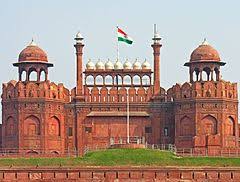
“Will history repeat itself? It is this thought which fills me with anxiety. This anxiety is deepened by the realisation of the fact that in addition to our old enemies in the form of castes and creeds. we are going to have many political parties with diverse and opposing political creeds. Will Indian place the country above their creed or will they place creed above country?”
–DR. B R AMBEDKAR’S LAST SPEECH IN THE CONSTITUENT ASSEMBLY ON ADOPTION OF THE CONSTITUTION (NOVEMBER 25, 1949)
The celebration of Independence Day which is a national festival provides us an opportunity to take stock of our journey as a nation. Unfortunately, this day was also marred by unwanted controversies and petty party politics with electoral considerations. The incidences such as abrupt and dictatorial order to stop the Rashtriya Swayamsevak Sangh (RSS) Sarsanghachalak Shri Mohan Bhagwat from hoisting the National flag, one of the longest serving Chief Ministers using the occasion to denigrate the highest Constitutional positions with ideological connotation and some educational institutions refusing to celebrate the most important day of our national life, clearly indicates the larger predicament of our national psyche against which Dr Ambedkar had already warned.
The same is true of the controversial speeches by Chief Ministers of Kerala and Tripura. Pinarayi Vijayan chose the occasion to use the term ‘poison of nationalism’ while Manik Sarkar targeted the highest Constitutional positions of the country with ideological connotations. They might score brownie points by appeasing some or the other groups by doing so, but they are harming the national unity and integrity. It also put them in bad light as instead of sharing the achievements of their respective governments with the people, they decided to spit venom against the Union Government. Such controversies may gain some space for the Communists in national media but will defeat the wisdom of Constitution makers.
The same is true of the controversial speech by the Tripura Chief Minister Manik Sarkar. First of all if Prasar Bharati has a self-regulation code and they are following it in letter and spirit, any supporter of free speech should welcome it. More importantly, the Chief Minister, who is unquestionably supported by the people of Tripura for more than two decades, has nothing to tell them about achievements of his Government or resolve to be made on the Independence Day, is the biggest irony. Instead he chose to target highest Constitutional positions of the country, just because he has to face Assembly elections in the coming months.
In Uttar Pradesh, madrasas were instructed to celebrate the National Independence Day is itself a matter of concern. After a Government order, as some institutions chose not to sing the national anthem, as shows how the vote-bank politics has fractured our sense of belongingness to this nation.
As per the modern theories of political science, growing politicisation of society is a good sign for democracy. The question is what kind of politicisation and politics for what. It is true that party politics is inherent and inevitable in democratic polity; so is the independent media and hard questioning by them. While doing so, can we draw certain lines where petty tricks of electoral politics can be avoided? There is a politics beyond elections and electoral considerations; politics of national reconstruction.
The idea of ‘New Bharat’ will not come from political revolution but from cultural evolution; our national character will be tested in this process. We, the people of Bharat, will have to convey the message to political parties and media that everything is not saleable in the electoral market. Our ancient cultural heritage, innate unity, freedom struggle and national days are common to all and no other identity or division can misuse or manipulate that. Our collective resolve to dedicate ourselves to the larger national identity and draw the Lakshman Rekha to political parties will enable us to build New Bharat with the principle of from the past, through the present and to the future.
Prafulla Ketkar
Courtesy: Organiser














